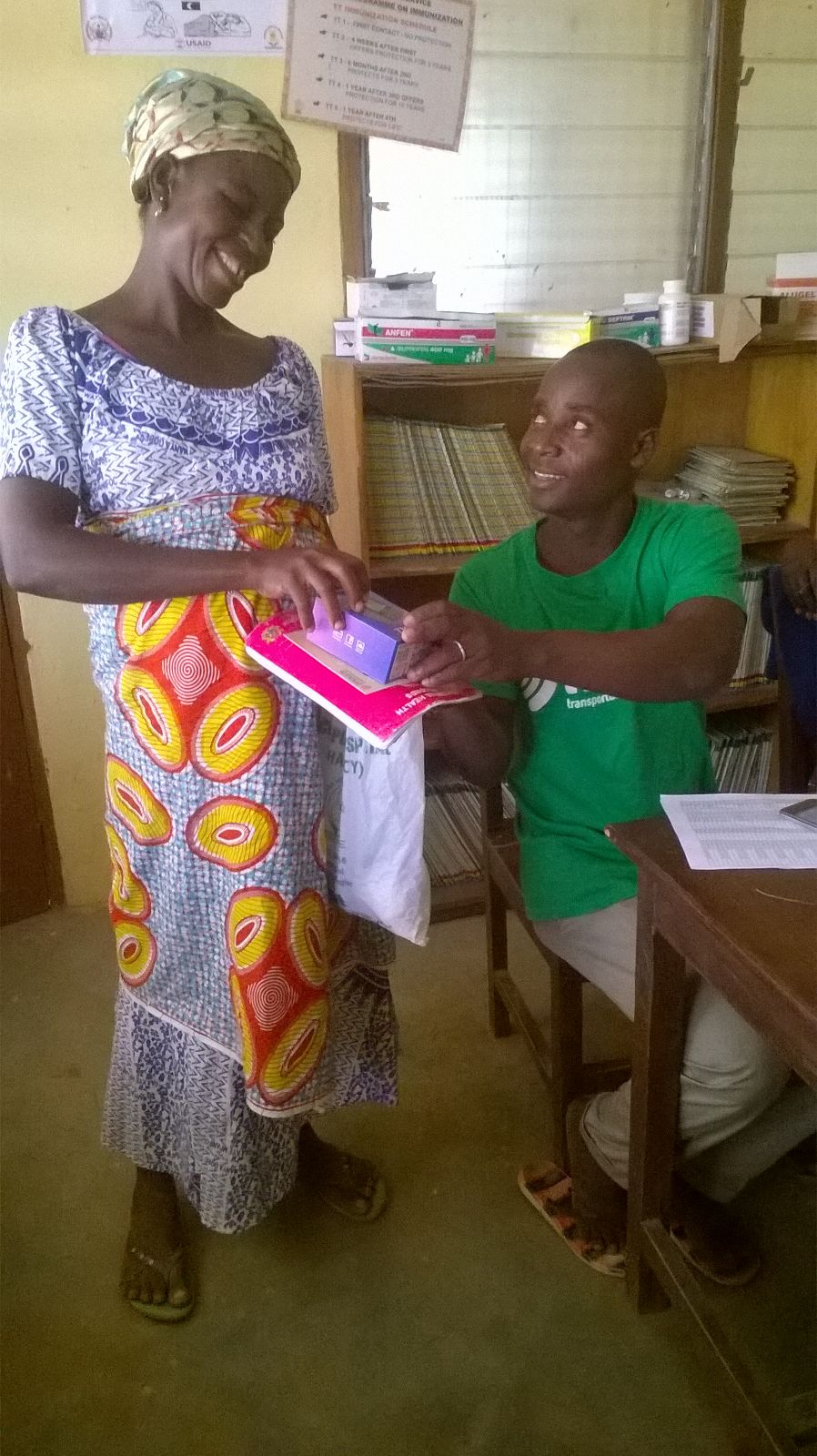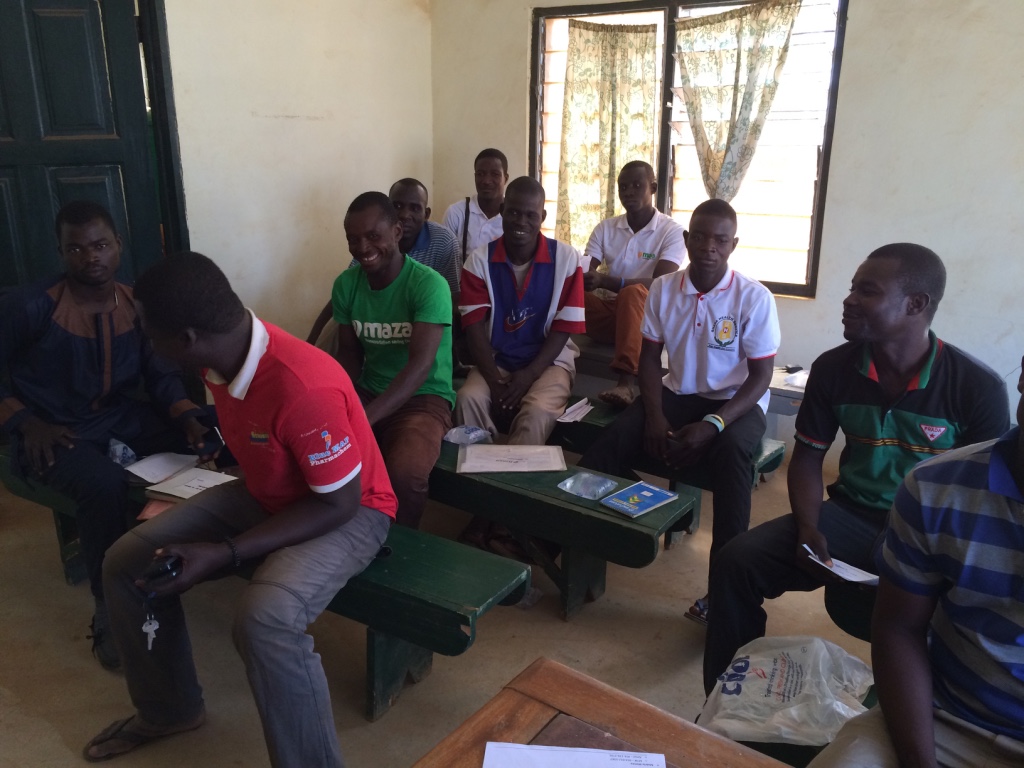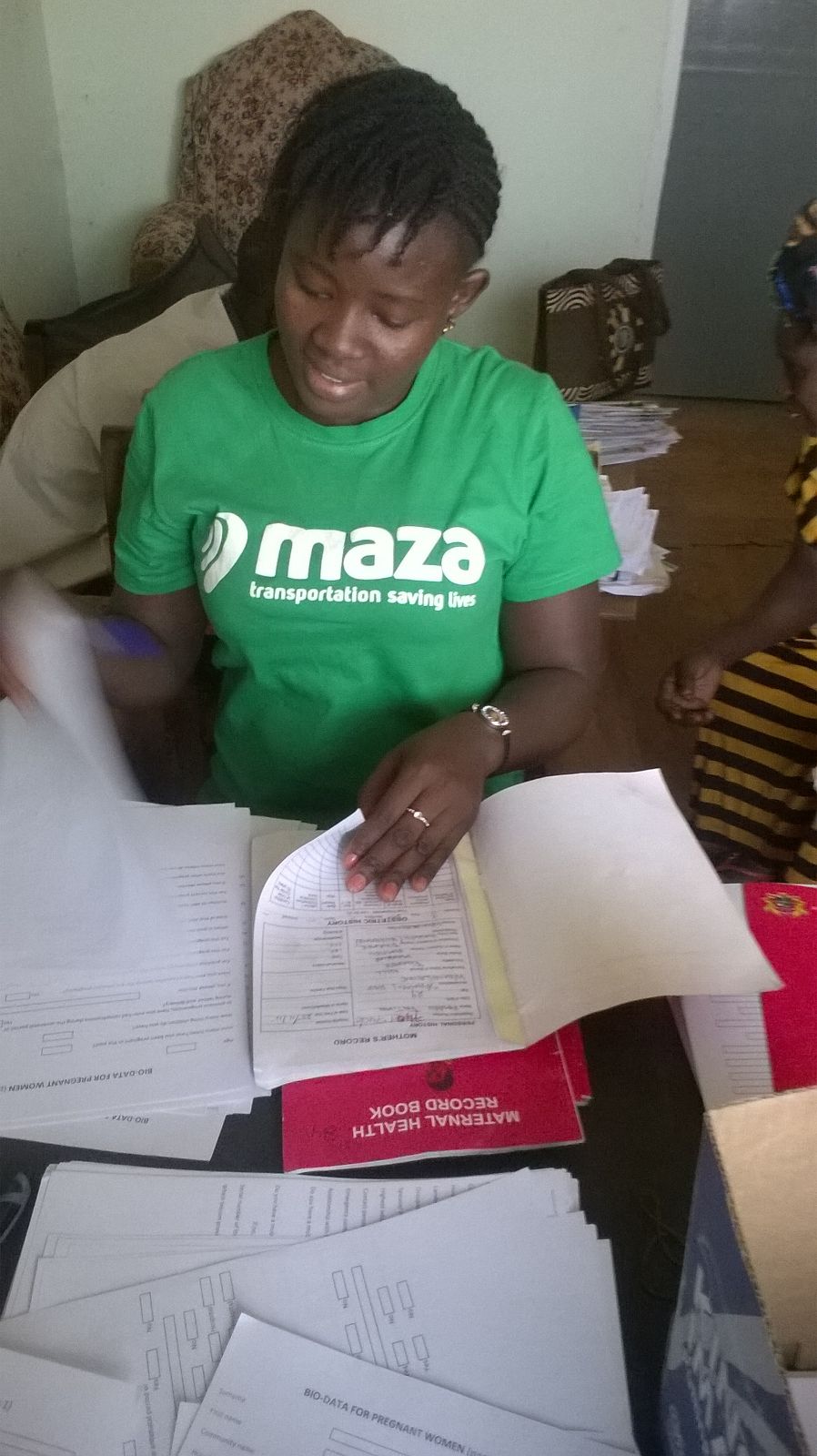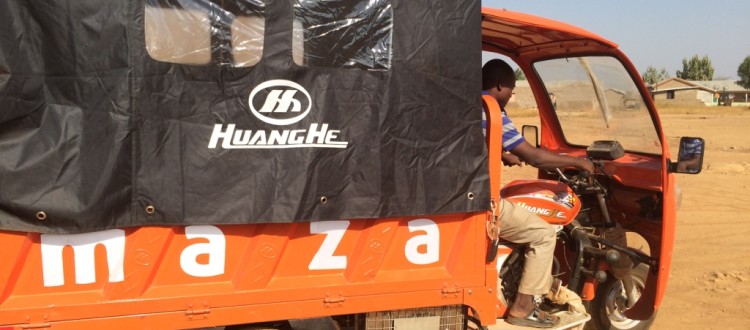MAZA, six weeks on: good progress, learning and adjustments
It’s been six weeks since MAZA launched its operations in Chereponi District in the Northern Region of Ghana. And in this short time we have already learned so much about what works well, what doesn’t and how we can do better. In this blog, we are pleased to share our progress to date, what we are learning and how we are improving.
PROGRESS TO DATE
We have 13 motorized tricycles being operated by 13 drivers from the rural areas of Chereponi, which have been distributed such that one vehicle serves 3000 to 3500 people. The drivers are generating reasonable income from commercial transportation and are paying their loans to MAZA on a weekly basis without much trouble. Most of their commercial income comes from passenger transport to market and special occasions such as weddings as well as haulage of farm produce.
So far, the MAZA drivers have successfully transported 14 people to hospital or clinic on an urgent basis. Four of them were women in labor while the others were cases of burns, convulsions, fractures and more complex clinical conditions. All the pregnant women delivered their babies with skilled health care providers and all of them survived except for one baby who died in hospital on the second day of life due to difficulty breathing.
Through our partnership with the Ghana Health Service, we have subscribed 210 pregnant women to MAZA’s transportation service during antenatal clinic at the health center and health posts in the district. About half of the women are in their third trimester of pregnancy. Thus, we expect an increasing proportion of our urgent health transportation rides in the future to be women in labor.

Almost all the phone calls coming through MAZA’s 24-hour toll-free phone line are pregnant women and their husbands calling to thank us for our transportation service and the mobile phone that they received as part of their subscription package, updating us on the status of their mobile money savings or simply checking whether the toll-free number really works. We view the latter as important in building trust and credibility with the families so that they are more likely to call us when they are in need of urgent health transportation.
WHAT’S WORKING WELL?
- Drivers – The drivers are doing well financially and they are paying back their loans to MAZA on schedule. To date, loan default rates are zero and some drivers are even paying more than the minimum weekly amount. They are also adhering to their duty schedule for health transportation every three days without substantial compromise to their commercial transportation opportunities.
- Families – Our urgent health transportation service is beginning to be used by the pregnant women in labor and others in need of it. We have been pleasantly surprised by the range of clinical conditions for which people are accessing urgent health transportation.
- Toll-free line – Our toll-free phone line is operating reliably thanks to the services of AntCellular, a universal mobile toll-free provider in Ghana, and 24-hour dispatch coverage from MAZA’s two part-time staff in Tamale and our two full-time staff when they are not in Chereponi.
WHAT NEEDS IMPROVING?
1. Drivers:
- Only a handful of the drivers are keeping records of their trips, revenue generated, expenses incurred, and health transportation rides as required by MAZA’s operational procedures. Again, we are reinforcing the key aspects of the initial training we gave the drivers on the importance of good documentation for their own sake as well as ours.
- There have been several instances of overloading of the vehicles leading to the need to replace mechanical parts a lot earlier than anticipated. We are reinforcing the education we provided to the drivers last month about appropriate use and servicing of the vehicles. We have also modified our contracts with the drivers such that they pay for all servicing costs and all replacement of mechanical and electrical parts in order to create the right incentives for the behavior we expect of them.

2. Mobile phones:
- The demand for MAZA’s free mobile phones for pregnant women is much greater than we expected. Furthermore, we have noticed that the phones appear to be attracting pregnant women who have never come for antenatal care (ANC) to the clinic, often doubling or tripling the usual attendance and overwhelming the health staff. Thus, in mid-January we decided to limit the free mobile phone to pregnant women in their third trimester that had received ANC at least three times. This is because there is good evidence that the more often a pregnant woman attends ANC, the more likely she is to deliver with a skilled health care provider which increases her chances of survival in case of complications. In the near future, we plan to institute cost-sharing of the mobile phones in order to better discern the pregnant women who are most likely to use it for health transportation purposes.
- Almost all the husbands of the pregnant women MAZA has subscribed to our service so far have mobile phones but almost none of the women do. Moreover, virtually none of the women know their husband’s phone numbers, which is not surprising since they themselves do not have phones. When we visit the pregnant women at home in the next few weeks, we plan to explore the extent to which they can use their husband’s phones for mobile money saving or whether having their own phones is key to their ability to access MAZA’s service reliably given gender dynamics in the household and the greater mobility of their husbands for work.

3. Driver on duty & mobile phone network coverage:
We have had one instance of a MAZA dispatcher being unable to reach the driver on duty to transport a woman in labor to the hospital due to unreliable coverage of the mobile phone network. We were able to reach another driver who was not on call that day but was available. However, he was too far away from the woman’s community to arrive in a timely manner; by the time he got there, the family had already hailed a motorcycle to get them to the hospital, which is less safe and comfortable for a woman in labor. Thankfully, both mother and baby survived and are back at home safely and in good health.
MAZA is taking this operational failure very seriously – we are actively problem-solving with the drivers on how we can improve the reliability of our service. Our drivers already have phone numbers on at least two different mobile phone networks and carry a dual-SIM phone provided by MAZA. Options being considered are increasing the number of networks on which they have service, ensuring that they are in locations with strong mobile phone signal during duty hours, increasing the number of vehicles and drivers so that we can have more than one driver on duty for a particular catchment area on a given day.
4. Community relations
One of the MAZA vehicles was confiscated by a prominent family because they did not agree with the selection of the driver who serves their catchment area, Brunbruga, for a combination of geographic and ethnic reasons. The vehicle was ultimately off the road for nine days with consequent loss of income for the driver. When we visited the district, we went to Brunbruga twice to clarify the selection criteria for the initial pool of candidate drivers and the rigorous interview process we applied to arrive at the final group of 13 but they refused to give us back our vehicle. Eventually, we had to involve the local police to regain custody of our vehicle and return it to the driver with whom we have a contract.
We have since re-assigned this driver to a different catchment area and have found a temporary solution to cover urgent health transportation calls we receive from Brunbruga. In the next few weeks when the situation is calmer, we plan to re-visit Brunbruga to meet with the prominent family, chief, elders and other key stakeholders to co-develop a more permanent solution.
LOOKING FORWARD
We are pleased with our progress so far and are highly encouraged by the level of engagement and support from the drivers, families, communities and the health care providers of Chereponi District. We will continue to monitor our work closely and regularly so we can achieve operational excellence, the key to reliable service, as quickly as possible. We welcome ideas, suggestions, comments etc.
To learn more about MAZA: www.mazatransport.org.
To support MAZA’s work with a donation: http://www.mazatransport.org/donate-options/
The author is the founder and CEO of MAZA. She can be reached at ntwumdanso@mazatransport.org.



